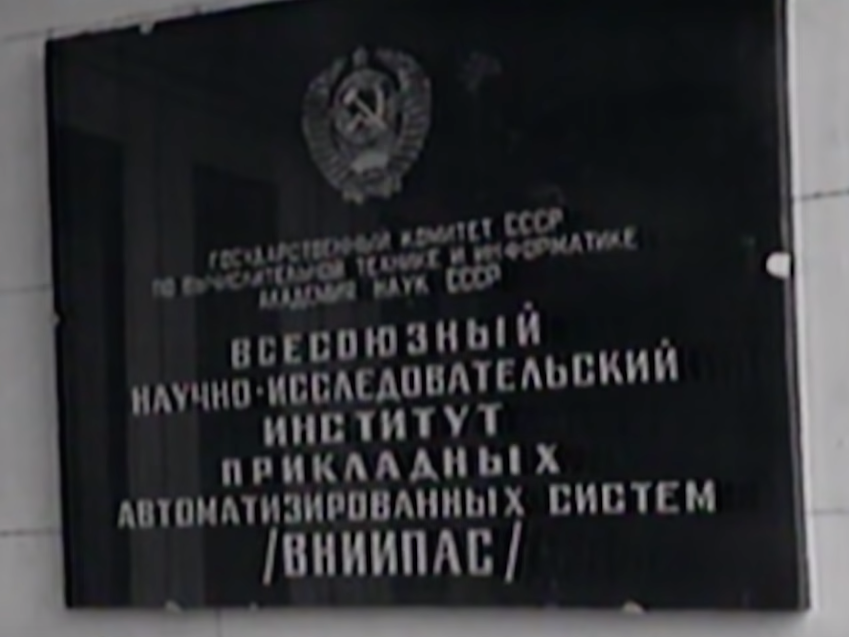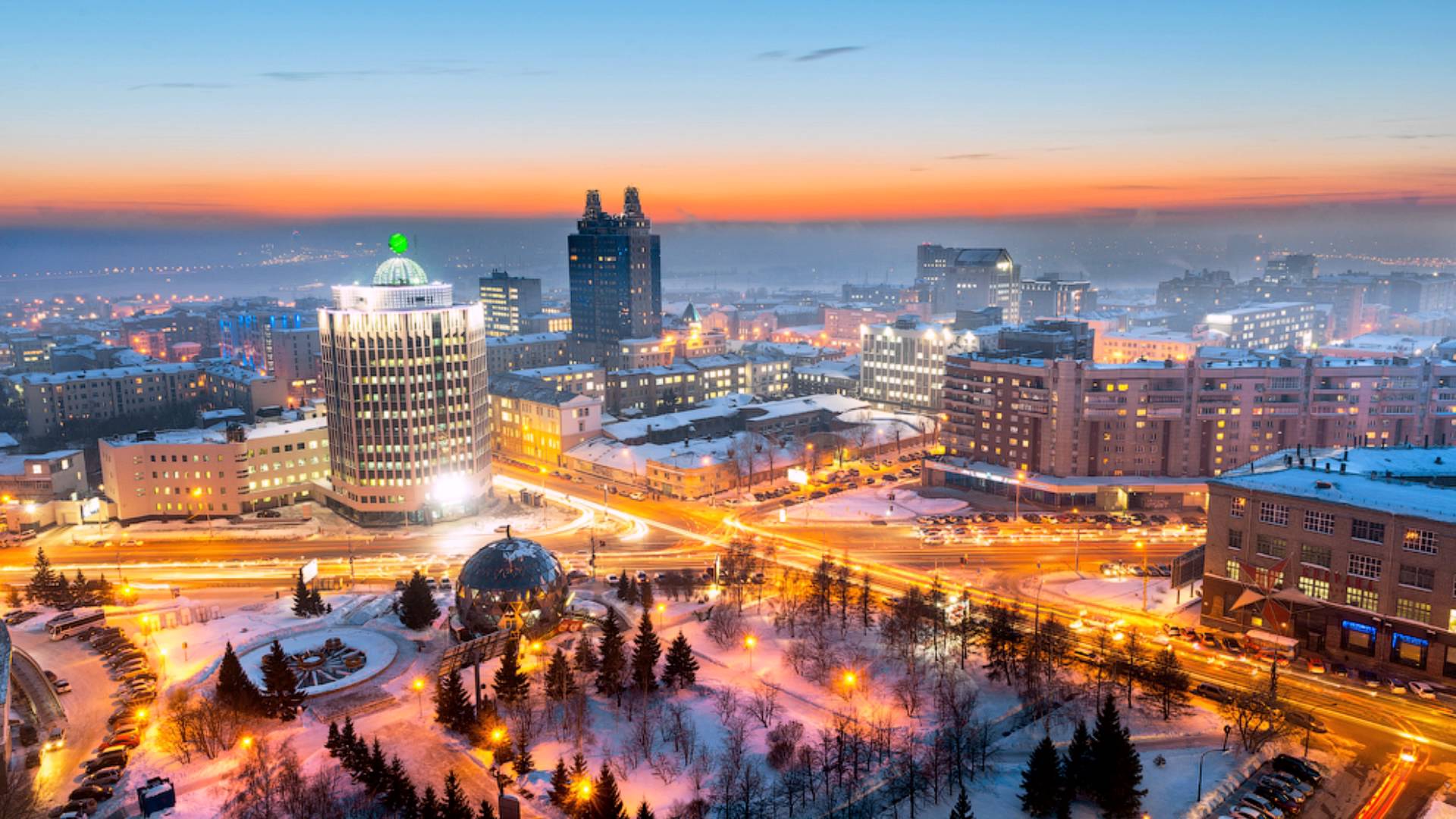|
History Of The Internet In Russia
The Russian internet (also known as the runet) is a part of the Internet with its main content in Russian. According to data from August 2019 and studies conducted by W3Techs, 6.5% of the 10 million most popular Internet sites in the world use Russian. In 2013, according to these studies, the Russian language became the second most popular on the Internet after English. Background In the USSR, the first computer networks appeared in the 1950s in missile defense system at Sary Shagan (first they were tested in Moscow at Lebedev Institute of Precision Mechanics and Computer Engineering). In the 1960s, the massive computer network project called OGAS was proposed but failed to be implemented. Apollo–Soyuz USA–USSR joint space program (1972–1975) used digital data for spaceships transmitted between two countries. Since the late 1970s, X.25 Soviet networks began to appear and Akademset emerged in Leningrad in 1978. By 1982 VNIIPAS institute was created in Moscow to serve as Ak ... [...More Info...] [...Related Items...] OR: [Wikipedia] [Google] [Baidu] |
VNIIPAS
The All Union Scientific Research Institute for Applied Automated Systems (VNIIPAS/ВНИИПАС) was a Soviet research institute that provided a computer network service, including international digital connections. It was the central node of inner USSR scientific data network called Academset. VNIIPAS derived from 1976-established VNIISI/ВНИИСИ which was a partner project of Austrian International Institute for Applied Systems Analysis (IIASA). History The IIASA at Laxenburg, Austria was created in 1972 as a joint USSR-USA effort to establish global scientific communications through the Club of Rome. VNIIPAS operated from 1982 until 1995. In 1983 VNIIPAS, Joel Schatz, Don Carlson, Michael Kleeman, Chet Watson, and George Soros created the joint telecommunication venture ''San Francisco — Moscow Teleport'' (SFMT), later known as '' Sovam Teleport'' ("Soviet-American teleport") that operated digital connections between USSR and USA and later became the SWIFT Swif ... [...More Info...] [...Related Items...] OR: [Wikipedia] [Google] [Baidu] |
Internet In Russia
Internet in Russia or Russian Internet (russian: российский Интернет which means ''Russia-related Internet'') and sometimes Runet (using first two letters from Russian plus net) is a part of the Internet which is related to Russia. Internet access in Russia is available to businesses and to home users in various forms, including dial-up, cable, DSL, FTTH, mobile, wireless and satellite. As of 2020, 122,488,468 (85% of the country's total population) were Internet users. As of September 2020, Russia ranked 47th among the world's countries by the fixed broadband Internet access speed, with an average download speed of 75.91 mbit/s, and 88th by the mobile network Internet access speed with 22.83 mbit/s. According to Freedom House, the Internet in Russia is "Not Free" as of 2019. In September 2011 Russia overtook Germany on the European market with the highest number of unique visitors online. In March 2013 a survey found that Russian had become the second mos ... [...More Info...] [...Related Items...] OR: [Wikipedia] [Google] [Baidu] |
Eastern Bloc
The Eastern Bloc, also known as the Communist Bloc and the Soviet Bloc, was the group of socialist states of Central and Eastern Europe, East Asia, Southeast Asia, Africa, and Latin America under the influence of the Soviet Union that existed during the Cold War (1947–1991). These states followed the ideology of Marxism–Leninism, in opposition to the Capitalism, capitalist Western Bloc. The Eastern Bloc was often called the Second World, whereas the term "First World" referred to the Western Bloc and "Third World" referred to the Non-Aligned Movement, non-aligned countries that were mainly in Africa, Asia, and Latin America but notably also included former Tito–Stalin split, pre-1948 Soviet ally SFR Yugoslavia, which was located in Europe. In Western Europe, the term Eastern Bloc generally referred to the USSR and Central and Eastern European countries in the Comecon (East Germany, Polish People's Republic, Poland, Czechoslovak Socialist Republic, Czechoslovakia, Hungarian ... [...More Info...] [...Related Items...] OR: [Wikipedia] [Google] [Baidu] |
Anton Nosik
Anton Borisovich Nossik (russian: Анто́н Бори́сович Но́сик; 4 July 1966 – 9 July 2017) was a Russian journalist, social activist and blogger (10th place in RuNet according to Yandex.Blogs ranking). Sometimes he is called one of the godfathers of the Russian Internet or the first Russian-language blogger. He was an editor for the Russian online news publications Vesti.ru, Lenta.ru, Gazeta.ru and NEWSru.com. Nossik was one of the former managers of Rambler and blogging service holding company SUP Media (participated in this capacity in the LiveJournal service acquisition), and was the founder of ''Pomogi.org'' charitable foundation. Since mid-October 2009, he was appointed Deputy General Director of ''United Media'' and, concurrently, the position of chief editor Bfm.ru. From 16 November 2011 to 29 November 2012, he was the media director of SUP Media, which owns the LiveJournal service. In mid-2014, he co-founded ''Fuzzy cheese'', a market and public-op ... [...More Info...] [...Related Items...] OR: [Wikipedia] [Google] [Baidu] |
RELCOM
RELCOM or Relcom (russian: РЕЛКОМ, Релком), an acronym for "RELiable COMmunications" is a computer network in Russia. It was launched in the Soviet Union on August 1, 1990 in the Kurchatov Institute in collaboration with DEMOS co-operative (although the engineering team at DEMOS at the time consisted mostly of Kurchatov Institute employees, some key members ( Mikhail Davidov, Vadim Antonov, Dmitry Volodin) in the RELCOM team were never employed by Kurchatov Institute). It became one of the first Russian computer networks (and the first commercial internet service provider in the USSR) and its development led to the emergence of the Runet. Initially it was purely e-mail network based on the UUCP protocol. During the Soviet coup attempt of 1991 the Relcom network was used to spread news about the event worldwide while the coup perpetrators were trying to suppress mass media activity through the KGB. [...More Info...] [...Related Items...] OR: [Wikipedia] [Google] [Baidu] |
Kurchatov Institute
The Kurchatov Institute (russian: Национальный исследовательский центр «Курчатовский Институт», 'National Research Centre "Kurchatov Institute) is Russia's leading research and development institution in the field of nuclear energy. It is named after Igor Kurchatov and is located at 1 Kurchatov Square, Moscow. In the Soviet Union it was known as I. V. Kurchatov Institute of Atomic Energy (russian: Институт Атомной Энергии им. И.В. Курчатова), abbreviated KIAE (russian: КИАЭ). Between 1991 and 2010, it was known as the Russian Scientific Centre "Kurchatov Institute" () before its name was changed to National Research Centre. History Until 1955 known under a secret name "Laboratory No. 2 of the USSR Academy of Sciences", the Kurchatov Institute was founded in 1943 with the initial purpose of developing nuclear weapons. The majority of Soviet nuclear reactors were designed in the insti ... [...More Info...] [...Related Items...] OR: [Wikipedia] [Google] [Baidu] |
DEMOS
Demos may refer to: Computing * DEMOS, a Soviet Unix-like operating system * DEMOS (ISP), the first internet service provider in the USSR * Demos Commander, an Orthodox File Manager for Unix-like systems * plural for Demo (computer programming) Organizations * Demos (UK think tank), London-based public policy research organisation and publisher * Demos (U.S. think tank), a public policy research and advocacy organization * DEMOS (Republika Srpska), a political party in Republika Srpska * DEMOS (Montenegro), a parliamentary political party in Montenegro * DEMOS (Slovenia), a coalition of democratic political parties in Slovenia * Demos Medical Publishing, a publisher of books on medical subjects * Solidary Democracy, a political party in Italy * Democracy and Solidarity Party, a political party in Romania Arts and entertainment * ''Demos'' (film), a 1921 silent film * ''Demos'' (novel), an 1886 novel by George Gissing * ''Demos Journal'', an Australian literary and political jo ... [...More Info...] [...Related Items...] OR: [Wikipedia] [Google] [Baidu] |
SWIFT
Swift or SWIFT most commonly refers to: * SWIFT, an international organization facilitating transactions between banks ** SWIFT code * Swift (programming language) * Swift (bird), a family of birds It may also refer to: Organizations * SWIFT, an international organization facilitating transactions between banks * Swift Engineering, an American engineering firm * Swift & Company, a meat processing company * Swifts (aerobatic team), a Russian aerobatic team Transportation companies * Swift Cooper, a British racing car manufacturer * Swift Leisure, a British manufacturer of caravans * Swift Motor Company, of Coventry, England * Swift Transportation, a US trucking company Places * River Swift, a river in England * Swift, Illinois, an unincorporated community in northeastern Illinois * Swift County, Minnesota, a county in west-central Minnesota * Swift, Minnesota, an unincorporated community in northern Minnesota * Swift, Missouri, a ghost town in southeastern Missouri As ... [...More Info...] [...Related Items...] OR: [Wikipedia] [Google] [Baidu] |
UUCP
UUCP is an acronym of Unix-to-Unix Copy. The term generally refers to a suite of computer programs and protocols allowing remote execution of commands and transfer of files, email and netnews between computers. A command named is one of the programs in the suite; it provides a user interface for requesting file copy operations. The UUCP suite also includes (user interface for remote command execution), (the communication program that performs the file transfers), (reports statistics on recent activity), (execute commands sent from remote machines), and (reports the UUCP name of the local system). Some versions of the suite include / (convert 8-bit binary files to 7-bit text format and vice versa). Although UUCP was originally developed on Unix in the 1970s and 1980s, and is most closely associated with Unix-like systems, UUCP implementations exist for several non-Unix-like operating systems, including DOS, OS/2, OpenVMS (for VAX hardware only), AmigaOS, classic Mac OS, an ... [...More Info...] [...Related Items...] OR: [Wikipedia] [Google] [Baidu] |
BITNET
BITNET was a co-operative U.S. university computer network founded in 1981 by Ira Fuchs at the City University of New York (CUNY) and Greydon Freeman at Yale University. The first network link was between CUNY and Yale. The name BITNET originally meant "Because It's There Network", but it eventually came to mean "Because It's Time Network". A college or university wishing to join BITNET was required to lease a data circuit ( phone line) from a site to an existing BITNET node, buy modems for each end of the data circuit, sending one to the connecting point site, and allow other institutions to connect to its site free of charge. Technical details Bitnet, with Remote Spooling Communications Subsystem (RSCS) and the Network Job Entry (NJE) network protocol, was used for the huge IBM internal network known as VNET. BITNET links originally ran at 9600 bit/s. The BITNET protocols were eventually ported to non-IBM mainframe operating systems, and became particularly widely implemen ... [...More Info...] [...Related Items...] OR: [Wikipedia] [Google] [Baidu] |
Novosibirsk
Novosibirsk (, also ; rus, Новосиби́рск, p=nəvəsʲɪˈbʲirsk, a=ru-Новосибирск.ogg) is the largest city and administrative centre of Novosibirsk Oblast and Siberian Federal District in Russia. As of the Russian Census (2021), 2021 Census, it had a population of 1,633,595, making it the most populous city in Siberia and the list of cities and towns in Russia by population, third-most populous city in Russia. The city is located in southwestern Siberia, on the banks of the Ob River. Novosibirsk was founded in 1893 on the Ob River crossing point of the future Trans-Siberian Railway, where the Novosibirsk Rail Bridge was constructed. Originally named Novonikolayevsk ("New Nicholas") in honor of Emperor Nicholas II, the city rapidly grew into a major transport, commercial, and industrial hub. Novosibirsk was ravaged by the Russian Civil War but recovered during the early Soviet Union, Soviet period and gained its present name, Novosibirsk ("New Siberia"), i ... [...More Info...] [...Related Items...] OR: [Wikipedia] [Google] [Baidu] |





